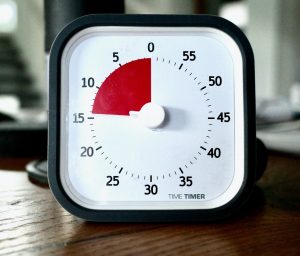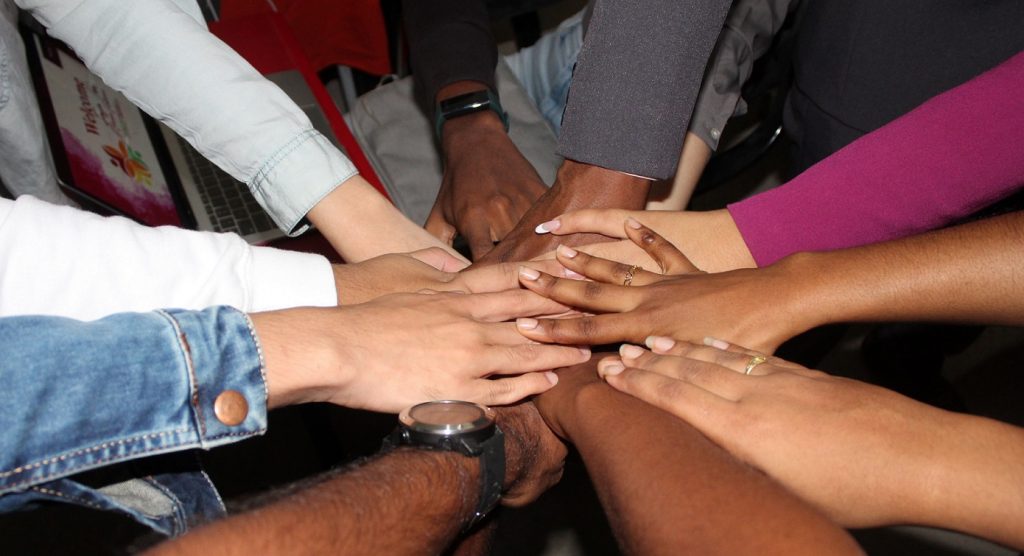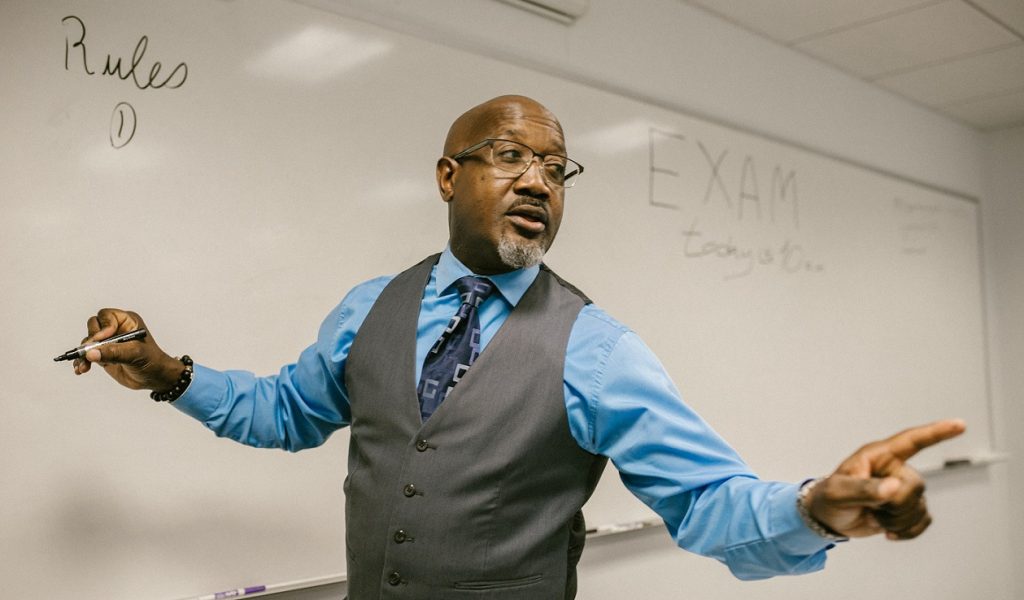Tagged Under:
5 Ways to Conquer Procrastination
Wait! Don’t Put Off Reading this Article!
Writers are famously good at procrastinating. Just how good? While working on this article, I found myself shopping for a dog bandanna … and I don’t have a dog.
Many creative and artistic personality types, including music educators, struggle with procrastination, which affects up to 20% of adults. Interestingly, some parts of the country tend to have more procrastinators, including Northern California and Oregon, according to the American Psychological Association. You’ve probably noticed procrastination behavior with some of your students, too, especially if you teach teens. A 2016 study found that procrastination is most common in people ages 14 to 29.
What Causes Procrastination?
The word procrastinate has been around in the English language since the 1500s, with roots in the Latin prefix pro as in “forward” and crastinus, meaning “of tomorrow.” This makes me picture a bunch of monks playing foosball and drinking beer while a stack of manuscripts goes uncopied.
 All humans procrastinate to some level, and that’s due to a cognitive bias: They falsely believe that 1) tasks will magically become easier, and 2) we’ll have more time for the task. According to research published in 2022 in the journal Nature Communications, MRI imaging can capture a brain procrastinating, with changes observed in the prefrontal cortex. With procrastination, we tend to enjoy the immediate rewards of procrastinating — whee, free time! — and underestimate the adverse consequence of procrastinating, such as stress, late fees or bad performance reviews.
All humans procrastinate to some level, and that’s due to a cognitive bias: They falsely believe that 1) tasks will magically become easier, and 2) we’ll have more time for the task. According to research published in 2022 in the journal Nature Communications, MRI imaging can capture a brain procrastinating, with changes observed in the prefrontal cortex. With procrastination, we tend to enjoy the immediate rewards of procrastinating — whee, free time! — and underestimate the adverse consequence of procrastinating, such as stress, late fees or bad performance reviews.
Two Types of Procrastination
According to the U.S. Department of Education, procrastination comes in two flavors: active and passive. Active delay, a.k.a. active procrastination, is when someone chooses to wait until there is sufficient pressure to act. These are the people who file taxes on April 15 at 11:30 p.m. Or teachers who turn in student grades right before the administration comes calling for them. Some people simply prefer to work with a little — or a lot — of deadline weight bearing down on them.
Passive procrastination, in contrast, is when someone is paralyzed by a task, with that awful sensation of having no idea where to begin.
Procrastination and Mental Health
While it’s normal human behavior to procrastinate, it can be worsened by depression and anxiety. Writing in Psychology Today, Alice Boyes, Ph.D., notes a “chicken-and-egg” problem, where people deal with stress by procrastinating, which leads to more anxiety, which can contribute to a lack of momentum. One self-help treatment for depression is called behavioral activation, she says, where people schedule activities that are enjoyable and provide a sense of mastery and engagement. “Changing your behavior in this way can make your thinking style less depressed, even though you’re not specifically working on changing your thinking,” Boyes writes.
Try These 5 Strategies
Here are five ways to tackle procrastination:
- Connect big-picture goals to tasks. Preparing a lesson plan or assessing a student’s composition might be the task, for example, but keep your eye on the prize: You went into music education because you have a passion for music and wanted to share that love of music with other people. Tapping into that emotion can help reframe tasks as less onerous and more meaningful.
 Try the 15-minute trick. Set a timer and work on your task for 15 minutes. Just 15 minutes. When the timer goes off, you may find that you’ve gained some traction and are getting into the zone. Keep going if you want to. If not, take a break. Play the bassoon, pet your cat, call your sister. Then take another 15-minute whack. Time-management pros call this strategy “microproductivity.”
Try the 15-minute trick. Set a timer and work on your task for 15 minutes. Just 15 minutes. When the timer goes off, you may find that you’ve gained some traction and are getting into the zone. Keep going if you want to. If not, take a break. Play the bassoon, pet your cat, call your sister. Then take another 15-minute whack. Time-management pros call this strategy “microproductivity.”- Visualize the future. Writer Robert Hanks suggests that procrastination is a failure to “identify sufficiently with your future self.” So, using as many details as possible, imagine yourself suffering the results of your procrastination. Picture your future self, super tired, swigging coffee after having stayed up way too late working on student evaluations. Or think about dirty dishes piled up in the sink. Now envision yourself getting a good night’s rest after you banged out that grading, or how nice it feels to walk into a clean kitchen in the morning.
- Build in some rest days. Just as someone might have a “refeed” day if they are on a strict bodybuilding diet, pencil in an occasional cheat day for your brain. Burnout is one of the leading causes of procrastination, so support your mental health with time in nature or exercising. A rest day is the ideal time to recharge with some hobbies, time with friends and family, or just to putter. You’ll be back in business the next day feeling more refreshed and ready to handle your to-do list.
- Go with it! According to research published in the Academy of Management Journal, moderate levels of procrastination enhance creativity. The study authors noted that an incubation of ideas allows people to see problems with fresh lenses and to synthesize various area of knowledge. “Our research is not intended to license procrastination, but rather to normalize it as a potentially productive part of the creative process under special circumstances — where the delays are moderate and the problem is interesting or a new solution is needed,” the study’s authors wrote. A too-high level of procrastination, they warned, could be counterproductive to creativity.
Conquering procrastination can lead to more life satisfaction, less stress and greater professional success. So, if, as English writer Edward Young wrote “procrastination is the thief of time,” maybe this article can nudge you to stop stealing from yourself. Now, who needs a dog bandanna?















